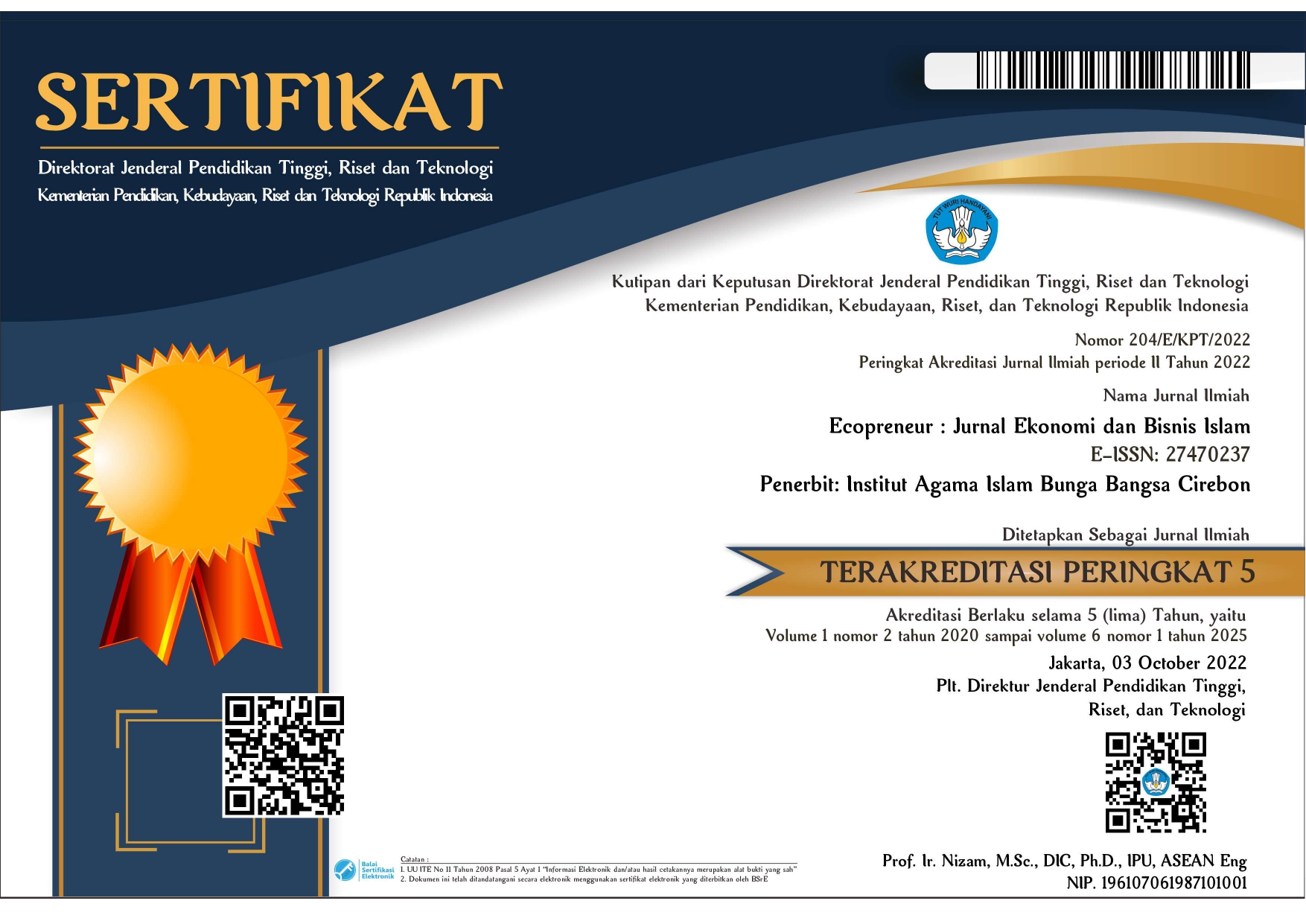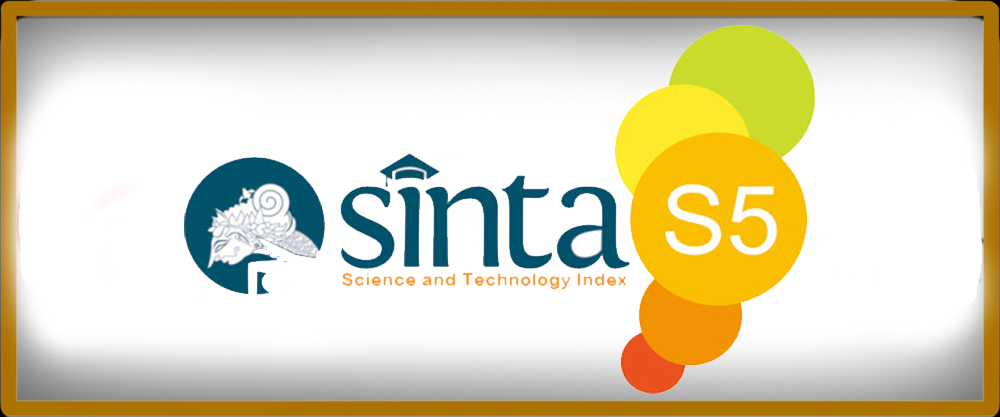Sustainable Economic Development within the Paradigm of Islamic Economics
Abstract
Global economy today faces imbalances in economic disparities among individuals and countries, as well as disparities between the use of natural resources and their negative environmental impacts. Sustainable economic development considers two main aspects: constraints of natural resources and environmental impacts in the consumption patterns of societies to achieve well-being in the future. The research method employed in this study is qualitative research with a library research approach. Library research involves activities related to gathering bibliographic data, reading, note-taking, and processing research materials. The Quran in Surah Al-Baqarah, Al-A'raf, Ar-Rum and Al-Mulk elucidates on the destruction of natural resources due to human actions, serving as lessons from God resulting from human activities that consciously cause destruction. Humans, as stewards of the Earth, have a duty to protect and manage resources by preserving the environment. The concept of sustainable economic development or green economy aligns with the principles of Sharia economics through the concept of maqasid al-shariah. This concept refers to the goals of Sharia that emphasize benefit (maslahah) and the preservation of necessities (al-dharuriyyat).
Downloads
References
Arsyad, Lincolin. “Ekonomi Pembangunan Dan Pembangunan Ekonomi.” In , 1–37.
Asriadi, Ari, Isnaini Harahap, and Zuhrizal M Nawawi. 2024. “Paradigma Ekonomi Berkelanjutan Di Negara Berkembang Dalam Perspektif Islam.” 10(01): 1009–16.
Azwar, Saifudin. Metode Penelitian. http://adl.aptik.or.id/default.aspx?tabID=61&src=k&id=302766 (February 12, 2021).
Badan Pemeriksa Keuangan Republik Indonesia. “Mengenal SDGs.”
Hidayat, Tatang, Ahmad Syamsu Rizal, and Fahrudin Fahrudin. 2018. “Peran Pondok Pesantren Sebagai Lembaga Pendidikan Islam Di Indonesia.” Ta’dib: Jurnal Pendidikan Islam 7(2): 1–10.
Mulyaningsih. Pembangunan Ekonomi.
P3EI BI. 2013. Ekonomi Islam. Rajagrafindo Persada. https://www.rajagrafindo.co.id/produk/ekonomi-islam-soft-cover/ (July 2, 2022).
Solechah, Warhidatun Maratus, and Sugito. 2023. “PEMBANGUNAN EKONOMI BERKELANJUTAN SEBAGAI KEPENTINGAN NASIONAL INDONESIA DALAM PRESIDENSI G20.” 8(Februari): 12–23.
Vita, Dwi, and Lestari Soehardi. 2022. “PERAN EKONOMI SYARIAH DALAM MEWUJUDKAN SUSTAINABLE DEVELOPMENT BERBASISGREEN ECONOMY.” : 31–39.
Yunita, and Novia Astuti. 2024. “Pembangunan Ekonomi Syariah Dan Hukum Ekonomi Berkelanjutan.” 1(4): 63–69.
Zohara, Lira. PENGANTAR ILMU EKONOMI. Semarang: CV Lawwana.












